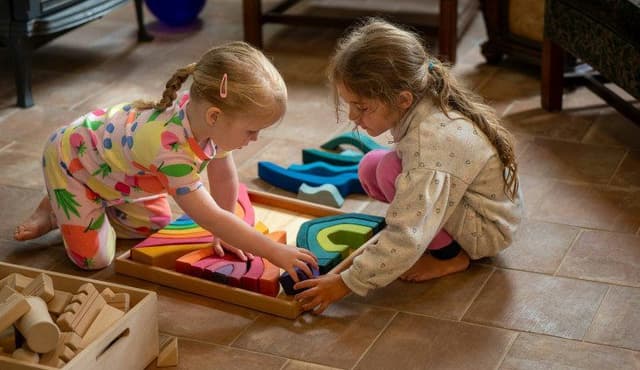Jobs News
Legislation
Policy
Federal Budget 2022/23 delivers on Plan for Cheaper Child Care but reference to workforce shortages absent

Jason Roberts
Oct 25, 2022
Save
Federal Treasurer Jim Chalmers has handed down the 2022/23 Federal Budget in which the Government delivered on its core Plan for Cheaper Child Care promise to improve early education and care (ECEC) affordability for Australian families however any additional policies to directly alleviate the ongoing challenges of the workforce crisis were not forthcoming.
“Early childhood education and care will be more affordable for more than 1.2 million eligible Australian families who will benefit from higher subsidies,” Mr Chalmers said.“Cheaper child care (sic.) is a game-changing investment in families, our workforce, and our economy. It will increase the paid hours worked by women with young children by up to 1.4 million hours a week in the first year alone. That’s the equivalent of 37,000 extra full-time workers.”
“Because our early childhood educators guide our young ones and help them grow in those critical early years, for the best possible start in life – it’s more than care.”
Elsewhere the Government reconfirmed its $1 billion agreement to deliver 180,000 places fee-free TAFE and community-based vocational education places in 2023, a move that over time should improve ECEC educator numbers with the benefits flowing in 2024 to 2025 as well as some teacher focused policies.
The key ECEC relevant highlights from the 2022 /23 Federal Budget are as follows:
Affordability focused measures:
- increase the maximum Child Care Subsidy (CCS) rate from 85 per cent to 90 per cent for families for the first child in care and increase the CCS rate for all families earning less than $530,000 in household income
- maintain current higher CCS rates for families with multiple children aged five years or under in child care, with higher CCS rates to cease 26 weeks after the older child’s last session of care, or when the child turns six years old
Accessibility focused measures:
- $33.7 million over four years from 2022–23 to introduce a base entitlement to 36 hours per fortnight of subsidised ECEC for families with First Nations children, regardless of activity hours or income level
- $10.2 million over three years from 2022–23 to establish the Early Childhood Care and Development Policy Partnership with Coalition of Peaks partners and First Nations representatives to develop policies on First Nations early childhood education and care
Workforce supply related measures:
- Around 180,000 fee-free TAFE and vocational education places will be delivered in 2023 in areas of highest skills need as part of a one-year National Skills Agreement with the states and territories commencing 1 January 2023
Teacher and Educator wages related measures:
- $20.2 million over four years from 2022–23 for the Fair Work Commission to establish the Pay Equity and Care and Community Sector expert panels (that includes a focus on ECEC) to explore wage related issues, and a specialised research unit.
- The Government will provide $310.4 million over nine years from 2022–23 (and $7.9 million per year ongoing) to attract and retain high-quality teachers and improve student outcomes, although it is unclear if these policies extend to ECEC.
Integrity focused measures:
- Savings of $173.0 million over four years from 2022–23 will be achieved by strengthening payment integrity and accuracy of the Child Care Subsidy program through enforcing electronic payment of early childhood education and care gap fees to reduce fraudulent claims.
- Funding of $47.7 million over four years from 2022–23 will be provided to the Department of Education to support a range of activities to help reduce fraud and non-compliance, such as helping ECEC providers to better understand their regulatory obligations and commencing work on a digital attendance validation solution to provide real time validation and reporting of child attendance at care.
Cost of early learning service focused measures:
- The Government will task the Australian Competition and Consumer Commission to undertake a 12 month inquiry into the cost of child care (sic.) and the Productivity Commission to conduct a comprehensive review of the child care sector
Transparency focused measures:
- Improve the transparency of the child care sector by requiring large providers to publicly report CCS-related revenue and profits.
Communication focused measures:
- The Government will provide $9.5 million over two years from 2022–23 to communicate the changes to the CCS system to families and child care providers.
Don’t miss a thing
Related Articles


















